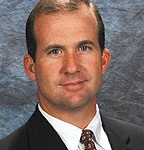All sorts of helpful folks, including customer service people, account managers, and other employees of financial institutions give customers advice about how to title accounts and name beneficiaries. However, seemingly harmless advice can cause many problems with estate plans in an effort to avoid probate.
Most new account forms at financial institutions ask you to name a beneficiary. Often when filling out beneficiary designations people do not understand how a share of the assets will be treated if that designated person predeceases them. Will the share of the deceased beneficiary go to their own descendants or to other named beneficiaries? Is that what you intended? Other problems occur when there are future children born who were not contemplated at the time the account was created. Filling out beneficiary designations properly is critical.
Avoiding probate can be accomplished through accurate beneficiary designations, or use of a revocable trust. Often a revocable trust can simplify the need to change designations in the event of changes in your life such as a divorce, marriage, or birth or death of a family member.
With a revocable trust, you can simply modify one document and it will take care of all of the accounts that are owned by the trust or has the trust named as a designated beneficiary. Sometimes it is difficult or impossible to make changes to beneficiary designation documents when a spouse becomes incapacitated, but a revocable trust can be drafted so that the healthy spouse has authority to amend documents without the signature of the incapacitated spouse. It is important to remember, however, that a revocable trust must be completely funded with the assets that would otherwise require probate in order to be effective.
What are “assets that would otherwise require probate?” These include anything titled in your sole name, without any other owners or any payable on death designation. It also includes assets you own with another as a tenant in common that have not been funded into the trust. It doesn’t include life insurance and retirement accounts, including IRAs, 401(k)s and annuities, as long as at least one designated beneficiary of the insurance policy or retirement account survives you.
Recognizing the benefits and draw backs of beneficiary designations and other tools for avoiding probate is important for structuring your estate plan.
Jeffery J. McKenna is an attorney licensed in three states and serving clients in Utah, Nevada, and Arizona. He is a partner at the law firm of Barney, McKenna and Olmstead, with offices in St. George and Mesquite. He is a founding member of the Southern Utah Estate Planning Council. If you have questions or topics that you would like addressed in these articles please email him at jmckenna@barney-mckenna.com or call 435 628-1711.
